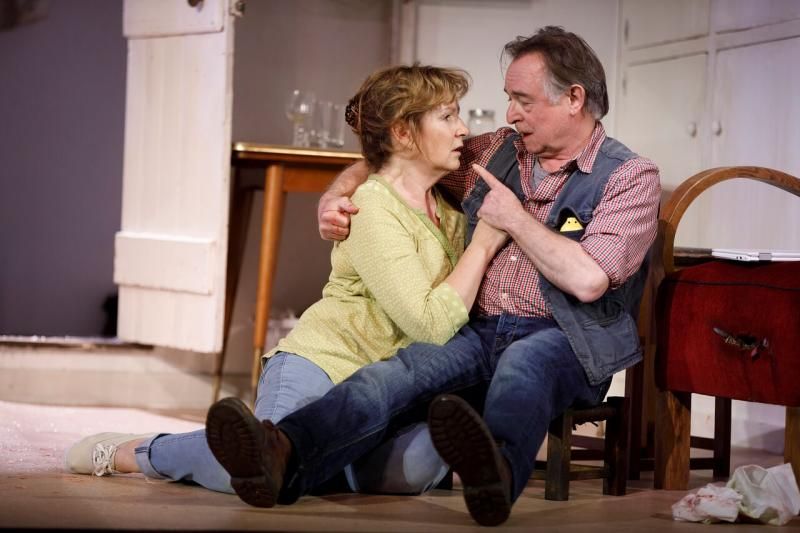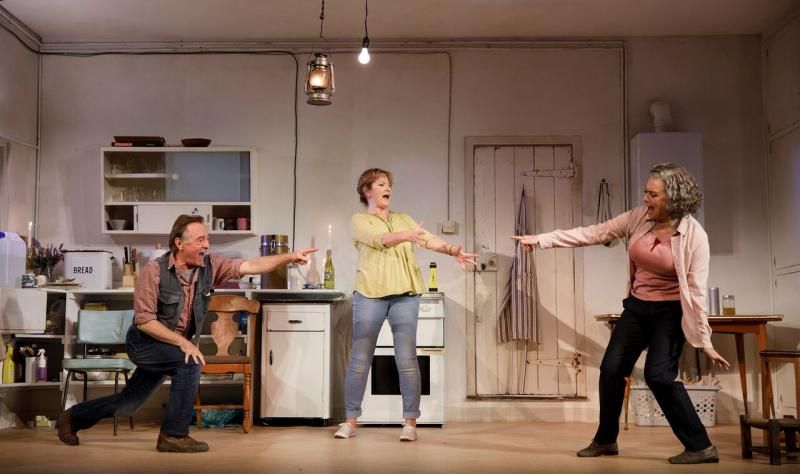Review: Lucy Kirkwood's Thoughtful THE CHILDREN Considers What Older Generations Owe To Younger Ones
When you consider the number of years that humans have been the dominant species on this planet, it was a comparatively quick burst of industrialization that set up the very real dilemma of progress causing irreversible harm to the environment that could lead to our ultimate demise.

(Photo: Joan Marcus)
Climate change, global warming and other damages may not seem like such urgent matters to some when predictions for Earth's inhabitability is focused on far-off generations.
But in British playwright Lucy Kirkwood's deceptively subtle drama The Children, three characters in their sixties consider their responsibility to the younger ones living now.
Director James MacDonald's Royal Court Theatre production, which has transferred to Broadway with its terrific three-member cast, serves as Kirkwood's introduction to New York audiences. Her past works have covered such topics as sex trafficking, the permanent effects of war on soldiers and political activism.
Designer Miriam Buether provides the play's only setting, the somewhat uncomfortably intimate, slightly tilted cottage shared by married retired nuclear engineers Hazel (Deborah Findlay) and Robin (Ron Cook).
The play begins with a bit of a jolt, as Rose (Francesca Annis), a work colleague from decades ago, is bleeding from the nose after being impulsively smacked by Hazel, who was surprised by her sudden appearance.
Bit by bit, as the trio catch up on each other's lives (and indulge in a bit of line dancing to James Brown's "Ain't It Funky Now"), it's revealed that the nearby nuclear power plant where they worked suffered a meltdown caused by an earthquake and a tsunami.

(Photo: Joan Marcus)
Despite exposure damaging their health, and their current living state of limited electricity, food and drinkable water, Hazel and Robin seem content to live out whatever's left of their lives together.
But Rose, who was once a romantic rival for Robin's heart (and seems to have an unusual familiarity for where things are in her hosts' home), has a serious proposal for the couple which involves former workers at the plant risking the ultimate sacrifice in order to contain some of the ongoing damaging effects for the sake of their children and others of the younger generation.
"Every day they're there is less life," she says of the workers in their 20s and 30s currently stationed at the plant. "We built it, didn't we? Or helped to. We're responsible."
With another author, the 100-minute play might have been shaved down to set up an adventure story of sensational heroism, but the great impact of Kirkwood's drama comes from its naturalism and simple presentation of a moral issue. Hazel and Robin seem like perfectly nice people who lived their lives as products of their generation and now wish to be left alone. But do they owe younger people more than just no longer contributing to what's damaging the world? Is it their responsibility to participate in the struggle to fix what their generation has done?
Reader Reviews
Powered by
|
Videos

